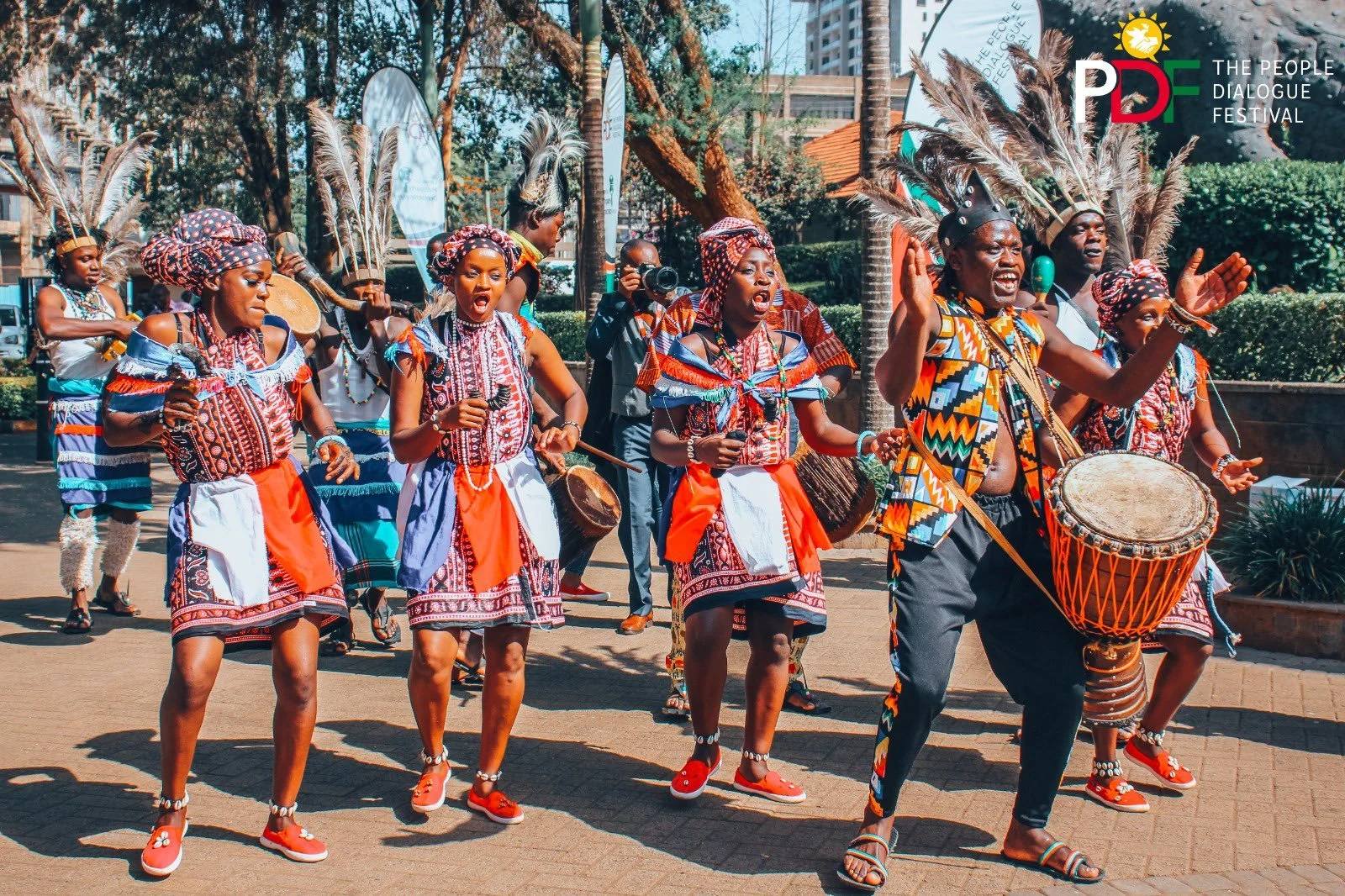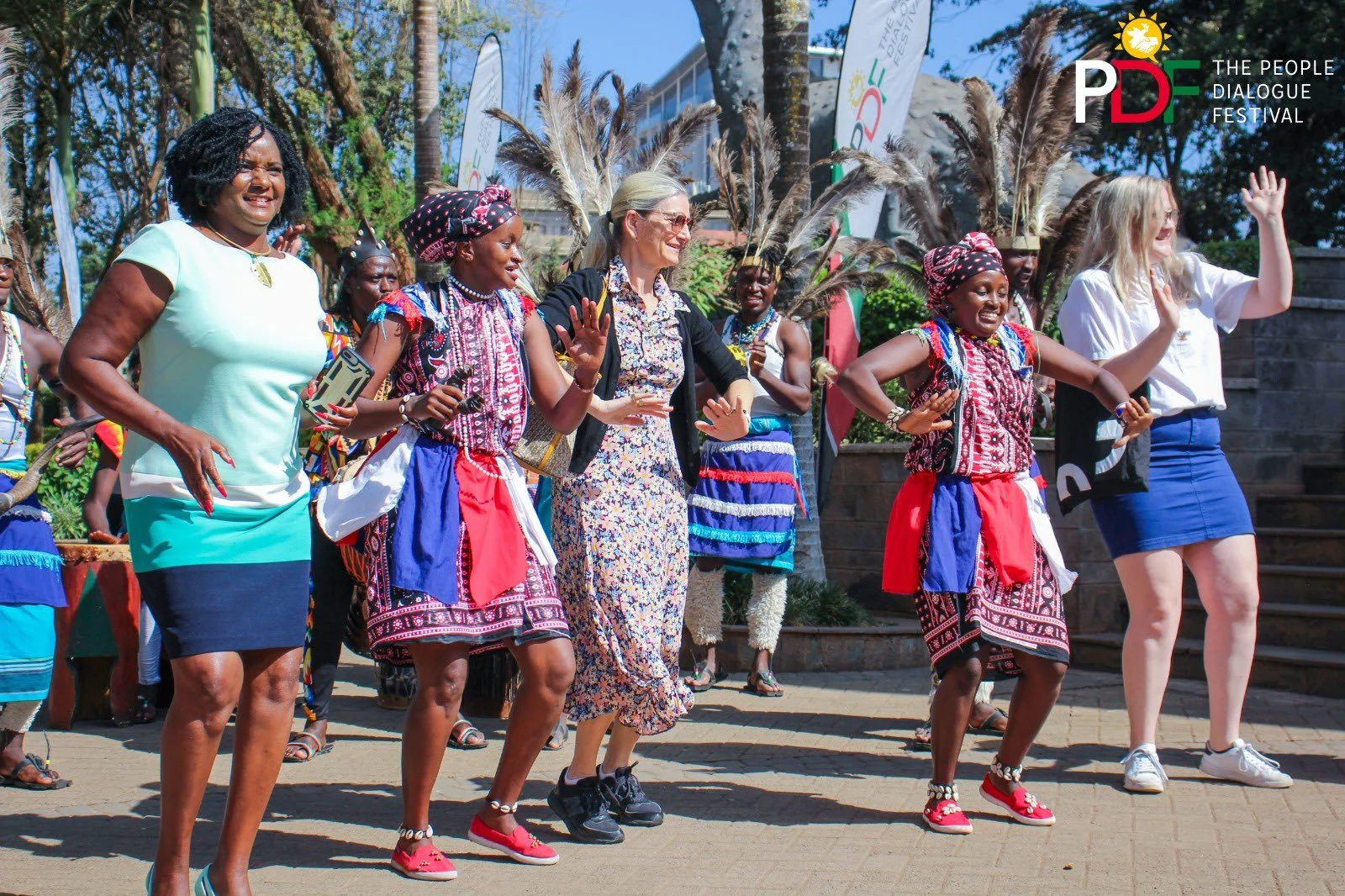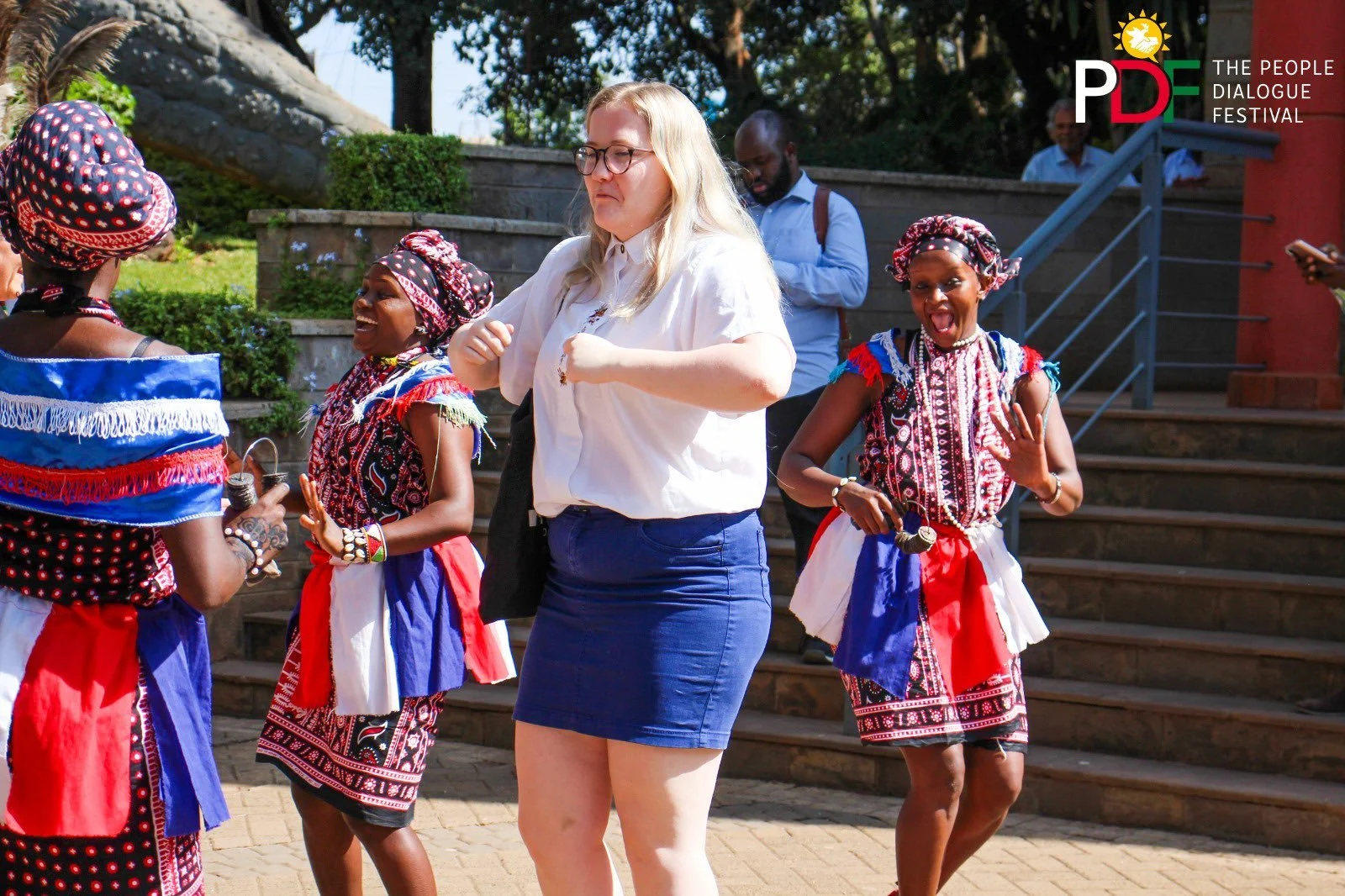Under its Democracy, Human Rights, and Governance pillar of work, The Youth Cafe is working to Support and Amplify Youth in Governance and democratic establishments; Support Youth Freedom of Expression; and Promote a culture of youth political participation. Thus, during this year's Peoples Dialogue Festival and Partners for Democracy, we are organizing two signature events.
Session One: Youth engagement in governance and 2022 Elections’ Audit at 9am -11 am, Mar 8, 2024
The session will serve as a launching pad for The Youth Cafe’s Comprehensive Youth Audit of Kenya's 2022 General Elections and features the electoral environment, legal frameworks, Key institutions for youth political participation in elections, youth issues in elections, recommendations, and their implications in deepening democracy.
This report is based on a combination of desk research, qualitative interviews and analysis of quantitative data from surveys, the IPU Parline database, IEBC and UN population data. The desk research examined published literature, peer-reviewed research and policy papers on a range of subjects, such as young parliamentarians, youth representation, electoral eligibility systems, political party youth support, barriers to youth participation and the link between trust in public institutions and youth engagement with politics.
As a precursor to elections, The Youth Cafe developed a non-partisan Kenya Youth Manifesto 2022, to amplify the voices of young people as active and influential stakeholders in the civic, democratic, and economic spaces in Kenya.
The Kenya Youth Manifesto Call to Action highlights key thematic issues under three broad pillars; Economic, Social, and Political. Economic issues have a direct impact on the ability of the youth to generate and benefit from income-generating streams. Social issues are pertinent include those obstacles currently preventing societies from working at an optimal level., while Political issues illuminate the common barriers to youth involvement in politics.
The actions recommended in the Youth Audit of the 2022 General Elections are directed toward specific stakeholders in youth development, including government, civil society, the private sector, United Nations agencies, donors, the international community, and young people themselves, among others. Thus, all stakeholders need to recognize that investing in youth calls for cooperation, institutional support, and youth-serving relationships across society and the different spheres of governance.
The session panel is moderated by Daphne Kimani and include:
Dr. James Ciera, Youth Engagement in Governance and Electoral Processes
Victor Kimwamu, President of Kenya Economic Students Association focusing on the Youth and State of Economy Policy Brief
Elsie Ojera, The Youth Cafe focussing on Youth Menu of Possible Commitments and Summit for Democracy
Venue: University of Nairobi – Chancellors Court (Graduation Square), in conjunction with Center for Multiparty Democracy, Twaweza East Africa, and Itanya Youth Network
Session Two: How AI and Big Data might impact and shape electoral processes in Kenya 7 March 2023 0900H to 1100H
Demographics of eligible voters in Kenya is youthful as 70% of Kenya’s current population is under the age of 25. Political decisions tend to be based on lived experience and material conditions, but there is no doubt that information from trends on social media, and ideas generated using AI and predictive analytics, could shape political decisions.
As The Youth Cafe, we are excited to be part of a high-level conversation on how AI and Big Data amplify youth voter engagement in Kenya. The session resonated with our current focus on “Digitalisation and Youth Participation”.
It is imperative for all states to participate in the development of guidelines for the ethical use of AI and Big data. National, regional, and international bodies governing the ethical and responsible political use of AI and Big data should be established and empowered to ensure regulatory oversight and accountability. Election governance frameworks should include guidelines on voter and candidate education, electoral management body (EMB) personnel training, media training, and dealing with AI and Big Data associated challenges. It is highly likely that the use of Big Data technologies to micro-target voters may further empower well-resourced political parties and increase inequality within countries. This would in turn widen turnout gaps and undermine engagement with groups of voters who are often missed or ignored by registration and voter mobilisation campaigns.
Thus, TYC is developing a youth playback for AI in elections, with an emphasis on youth and AI literacy for all. The Youth Cafe is working together to ensure policy development and widespread education on AI. Customized educational content is required for young people. Catering to contextual realities such as local languages and methods of information dissemination.
In addition, The Youth Cafe is partaking in processes leading up to the adoption of a Global Digital Compact is essential for consolidating worldwide scientific consensus on AI’s potential, risks, and challenges. Therefore, African stakeholders should engage strategically with the “Governing AI for humanity” agenda which is being led by the United Nations (UN). Further robust engagement and participation in platforms which focus on AI for political good is essential for information sharing, partnership building, and gaining insights on what to prioritise and invest in.
Underscoring the invaluable role of technologies such as Artificial Intelligence and Big Data in increased citizens’ participation in elections thereby potentially addressing Low Youth Political Participation. By leveraging these tools, we aim to rejuvenate youth voter interest and amplify their engagement in public life, thereby guaranteeing economic stability.. Artificial intelligence (AI) and technology can help address voter apathy, especially among African youth, but cannot take the place of substantive policy solutions
Venue: University of Nairobi – Chancellors Court (Graduation Square), in conjunction with Center for Multiparty Democracy and Elections Observation Group (ELOG).
Our panel will be moderated by Willice Onyango, Executive Director, The Youth Cafe and includes young people, AI researches, electoral governance institutions, IT companies, regulators:
Ethical issues and guidelines around AI in elections, Dr Ochieng Ojwang
Impact of Generative AI during elections, James Muindi
What are opportunities and challenges for youth voter engagement and education in the AI Era? Eric Mugendi, Fact Checking and Verification expert
The Youth Cafe’s continued involvement in the People's Dialogue Festival (PDF) 2024 and Partners for Democracy co-organized by Center for Multimedia Democracy and Global Democracy Coalition respectively, is not merely an event participation but a strategic move in realizing our mission to reimagine civil society.
In Kenya, the role of civil society is increasingly pivotal to counter the government populist narratives. By actively participating in the Peoples Dialogue and Partners for Democracy 2024, we not only contribute to the broader conversation on democratic development but also showcase our dedication to The Youth Cafe's mission.
PDF and P4D present an opportunity to advance our strategic goals of fostering inclusive dialogue and constructive public engagement. Our continued involvement in the PDF aligns with one of The Youth Cafe's core mission of generating open civic spaces through collaborative initiatives that yield tangible institutional and citizen-level impacts.
Evidence shows a pattern of not just relatively lower youth participation, engagement and involvement in electoral and governance processes but also a glaring downward trajectory at both levels of governance.
This risks youth interests not being represented and threatens Kenya's democratic governance given that the future is said to belong to the youth. The marginalization of the youth threatens to perpetuate a vicious cycle whereby youth tune out, leaders continue deferring young people’s needs and priorities risking even further disenfranchisement. Reversing these trends requires breaking this cycle and dedicating intentional effort to engage the young people at their level.
There is therefore a need to establish spaces that facilitate engagement, involvement and participation of the youth. These spaces will contribute in seeking to unravel the barriers to youth participation while at the same time establishing potential actionable remedies. We have designed these events to take place at the People's Dialogue Festival and Partners for Democracy 2024 as part of our contribution towards re-writing this wrong. Our co-created sessions targets the youth with an aim of having an intergenerational conversation. The dialogue will be centered around breaking this cycle and ensuring meaningful participation of youth in the electoral and governance processes.




